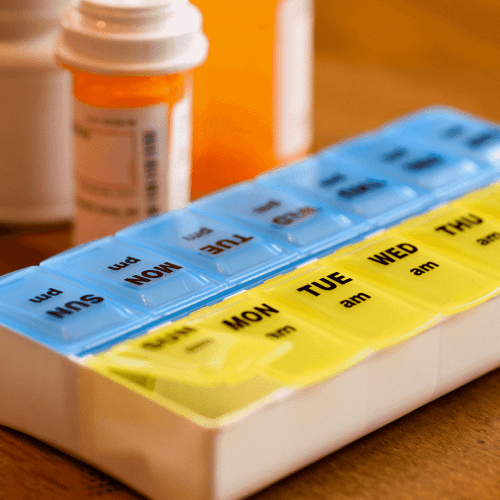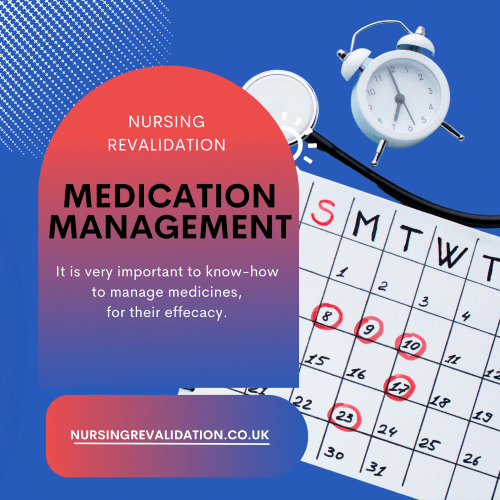All you need to know about medication management
Medication management is a service designed to help individuals manage their medications, so they take them on time, and avoid the dangers of incorrect medication administration.
What is medication management?
Medication management is an outpatient therapy strategy that includes an initial assessment of the patient’s drug requirements, the issuance of a prescription, and continuing medical monitoring of the patient’s medication use by a certified physician or prescriber.
It entails keeping track of patients, reconciling prescriptions, and ensuring that they achieve the expected results. To design treatment regimens and monitor their safety and efficacy, management necessitates a detailed examination of prescribed drugs and their potential adverse effects.
Why management of medication is important?
Non – compliance with correct medicine administration, has a significant influence on overall healthcare expenses and well-being. Medication Management is an essential part of the ongoing care strategy because medications can have either positive or negative effects on the patient depending on several factors that may be too complicated for the patient to understand or manage by themselves. This service contributes to:
- Improved patient uses and administration of all medications
- Improved percentage of patients meeting their healthcare goals
- Reduced side effects and duplication, as well as drug interactions, of all medications
What is a medication management plan?
The Medication Management Plan is a collaborative medication approach developed by health care providers in collaboration with their patients and caregivers. This strategy considers the function of the caregiving team as well as the specific needs of the patient. It can be used in a variety of settings including:
- Primary Care
- Out-patient
- Non-admitted areas
- In-patient
- Emergency Departments
- Subacute
A Medication Management Plan addresses potential problems with the patient’s present medication regimen as well as goals that have been agreed upon by the caregiving team, the patient, and the patient’s healthcare providers. The following points should be included in a medication management plan:
- Adverse drug reaction information and management
- Assessment of current medication management
- Clinical reviews of the patient’s medication
- Medication reconciliation
- Therapeutic drug monitoring
What are the 5 rights in a medication management plan?
 Wrong medications or the inappropriate dose of treatment reduces the patient’s satisfaction. Indeed, patients have lost trust in the healthcare system, due to the seriousness of the problem and growing concerns about doctors and pharmacists’ frequent errors in prescribing prescriptions that harm rather than help patients.
Wrong medications or the inappropriate dose of treatment reduces the patient’s satisfaction. Indeed, patients have lost trust in the healthcare system, due to the seriousness of the problem and growing concerns about doctors and pharmacists’ frequent errors in prescribing prescriptions that harm rather than help patients.
Experts developed The Five Rights of Medicine Administration as a guide for caregivers and healthcare practitioners to prevent some of the complications related to medication prescription. The following are the 5Rs of medication management:
- The Right Patient
- The Right Drug
- The Right Dose
- The Right Route
- The Right Time
 What are the most helpful tools in managing medications?
What are the most helpful tools in managing medications?
The following tools are very helpful in managing the medication. These tools help the patients to effectively arrange their medicines.
Pill Organizer:
Patients and caregivers can pre-fill compartments (designated by day or time) with the correct drugs using a pill organizer.
Automatic Pill Dispenser:
An automatic pill dispenser can sort, dispense, and deliver the correct dose to patients with a button.
Timers and Alarms:
If the medication schedule is simple and clear, a patient can simply use his phone to remind him, when it is time to take medicines throughout the day.
Medication List
The medication list is simply a piece of paper listing all the patient’s medications, their dosages, and administration schedules, as well as the prescribing doctor and the health problem for which they were prescribed. It should always be carried by the patient.
Timer Medicine Caps
A particular count-up feature on timer medicine caps keeps track of how much time has passed between bottle openings. They function as a stopwatch, reminding patients when it’s time to take their next medication.
Role of caregivers in medication management:
Caregivers play a critical role in patient medication management. They are frequently in charge of reminding patients to take their medications in the proper dosage and at the appropriate time. Caregivers must keep a tight eye on patients to verify that they are following their drug routine.
 They can provide crucial information to doctors and other healthcare providers about patients who forget to take their drugs or who double up on medications so that an action plan can be devised to fix the problem.
They can provide crucial information to doctors and other healthcare providers about patients who forget to take their drugs or who double up on medications so that an action plan can be devised to fix the problem.
Nursing Revalidation provides an effective medication management course. The course is in line with the National Minimum Standards Requirements and recent CQC guidelines. The content will deliver candidates with an understanding of the legislation involved with the administration of medication, along with being able to follow procedures set for safe administration of medication.
Candidates will also gain an understanding of the importance of confidentiality and security in all procedures of drug administration. So join the course now!


